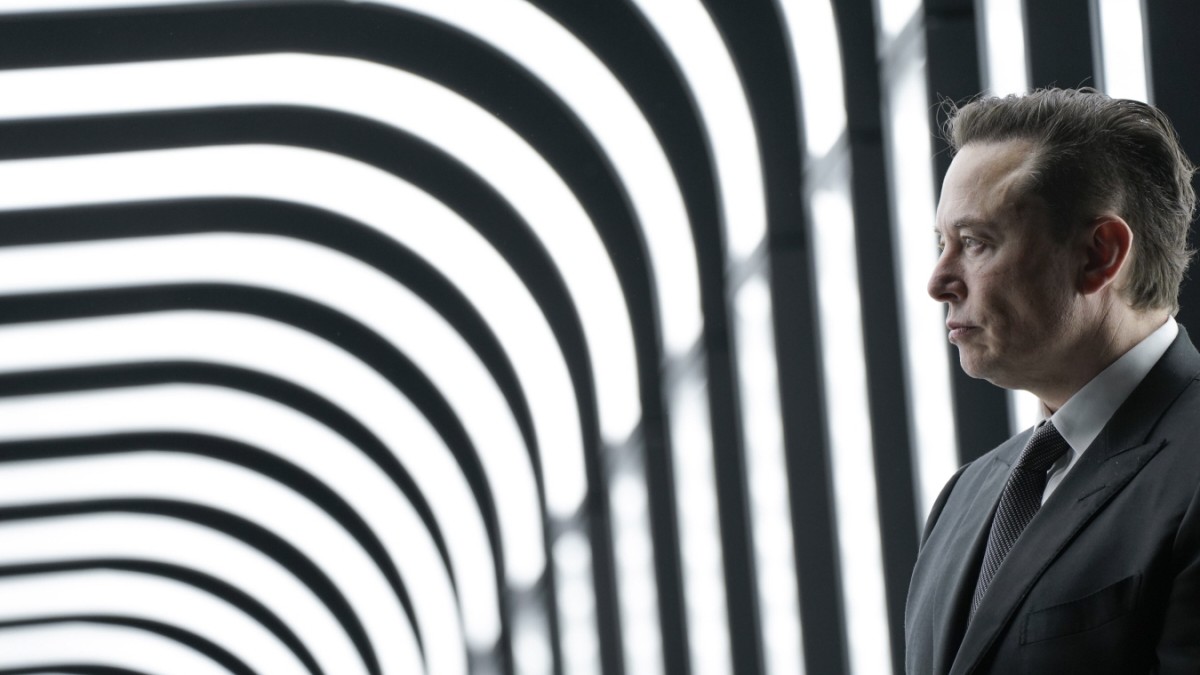Anyone who has bought an iron on the Internet can simply send it back shortly thereafter if they no longer want it. Once you’ve signed on to buy a billion-dollar company, it’s not that easy to get out. Elon Musk tries anyway.
The 51-year-old Tesla boss and billionaire is trying to call off the purchase of the social network Twitter. And this despite the fact that Musk and Twitter have had an agreement since April under which Musk will buy the company for $44 billion. He already holds 9.1 percent of Twitter.
His lawyers filed with the US Securities and Exchange Commission on Friday Document with which Musk withdraws from the purchase of the company. They justify this primarily with the fact that Twitter has given the number of so-called spam bots as too low. These are user accounts that automatically spread half-silver advertising or propaganda, for example. So the argument is that Twitter bosses duped Musk, the short message service far fewer real human users than it claims. Twitter CEO Bret Taylor quit suggests they will go to court to force Musk to go through with the deal as agreed.
Musks is playing a gamble in front of the social media public. This sets in motion a complicated process, deep in the American machine shop for big-money takeovers. Corporations buy start-ups to expand their empires. Private equity firms and hedge funds trade whole companies like used cars. And a billionaire like Musk buys companies like Twitter out of personal fascination, at least until he changes his mind. Now the focus is on where many of these stories take place: Delaware.
Was the offer to buy just a joke?
More than half of the large US companies have their formal headquarters in the small state on the east coast, including Twitter. Taxes are low and judges specialize in corporate law. They will decide whether Musk can walk away from the deal without consequences; whether he will get away with a billion dollar fine; or if he actually has to buy Twitter for $44 billion.
The real motives of the serial entrepreneur remain in the dark. Speaking at a business meeting in Sun Valley on Saturday, he dodged questions about Twitter. He preferred to talk about his ideas for colonizing Mars. Musk is said to have a certain Twitter addiction, his number of followers of more than 100 million is only surpassed by ex-US President Barack Obama and mega-celebrities like Rihanna. The service is his favorite toy, on which he disseminates his libertarian world view, which has recently become increasingly open to reactionary views, and on which he pokes fun at his critics. So it’s not entirely impossible that his offer to buy was just another hoax from the start, staged by the billionaire who’s hard-earned his reputation as an online troll.
The next act of the drama does not take place on the social media stage, nor in front of a jury, only before the judges of the Court of Chancery in Wilmington, Delaware, the main court for questions of corporate ownership.
Musk’s lawyers put forward three arguments for canceling the purchase: First, Twitter cheated. The company’s statement that less than five percent of user accounts are artificial is a massive understatement. Musk has not provided any evidence of this. According to the second accusation, this is due to the fact that Twitter did not give him any information. However, there is no evidence that the company was not transparent. On the contrary, Musk kept begging Twitter for new dates after signing, and got them. Twitter also gave him access to the “fire hose,” the data stream in which Musk’s experts could evaluate every tweet. So it will be exciting how Musk’s lawyers want to calculate that a large part of Twitter users are not human at all.
Third, Musk’s lawyers argue that Twitter fired two senior executives after the deal. That’s unlikely to impress a judge in hire-and-fire America, especially during an economic downturn.
However, all of this would only give Musk the right to withdraw from the purchase if Twitter’s business has demonstrably failed. Such clauses in purchase contracts are intended to prevent companies from hiding debts, for example. However, business judges in Delaware rarely find this case. An exception was a lawsuit against the medical technology group Fresenius. He was allowed to call off the purchase of the pharmaceutical company Akorn in 2018 because its managers withheld important information from him.
Deal is deal, that’s how the judges keep it
Overall, Twitter’s chances are not bad. Because as absurd as it sounds that someone can be forced to pull off a billion-dollar deal that they no longer want, the courts repeatedly condemn those who are unwilling to do so. It wasn’t until the Covid pandemic that there were two showdowns in Delaware. Private equity firm Kohlberg had an acquisition deal with cake decorating company Decopac. After the pandemic turned everything upside down, Kohlberg tried to cancel the purchase. Nothing there, said the judges, a deal is a deal. Kohlberg had to buy Decopac.
The jewelry company Tiffany also forced the luxury goods manufacturer LVMH to buy it after all. However, LVMH ended up paying $420 million less than originally agreed. Musk could also speculate on such a discount. He might need it. After all, the price of his Tesla shares has plummeted since the deal. Their value accounts for a large part of his wealth.
There’s also a psychological component to play in Delaware, which Bloomberg columnist Matt Levine points out indicates: Will a Delaware judge really force the richest man in the world, who has an army of fans on social media behind him, to go through with the deal? That could intimidate even a Delaware judge. The case could also be a test of the independence of the US judiciary.
–


